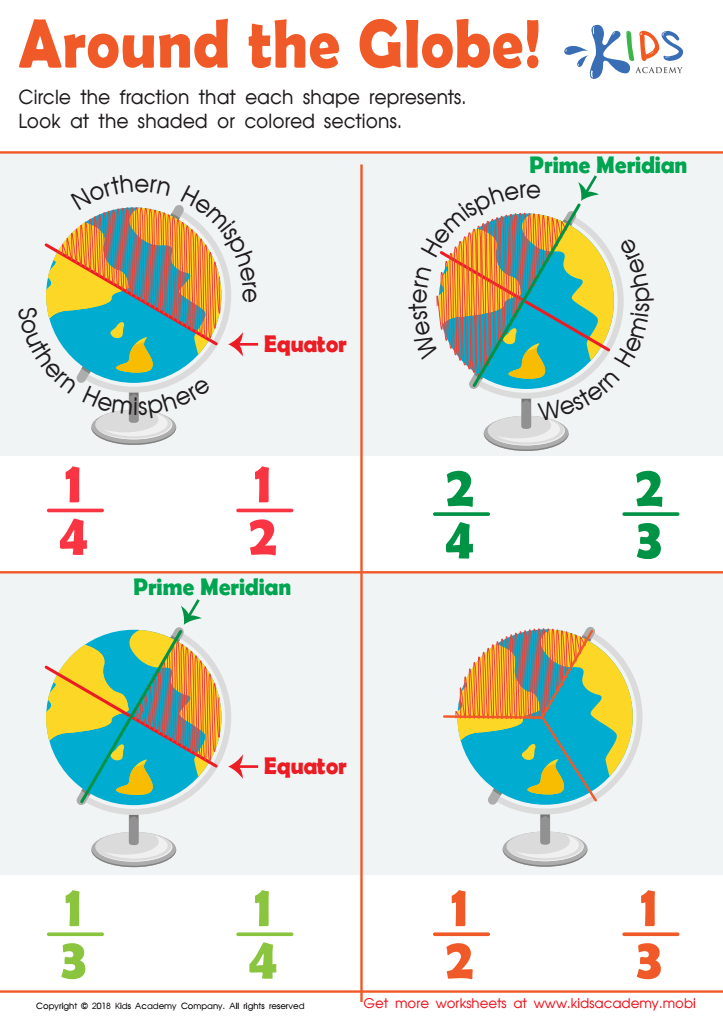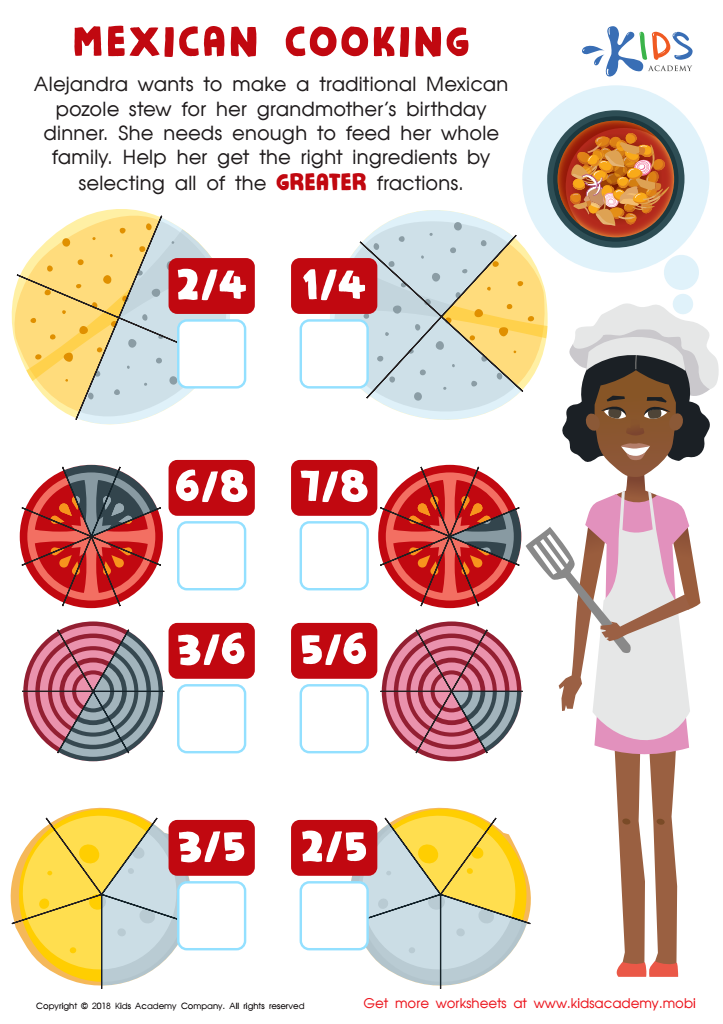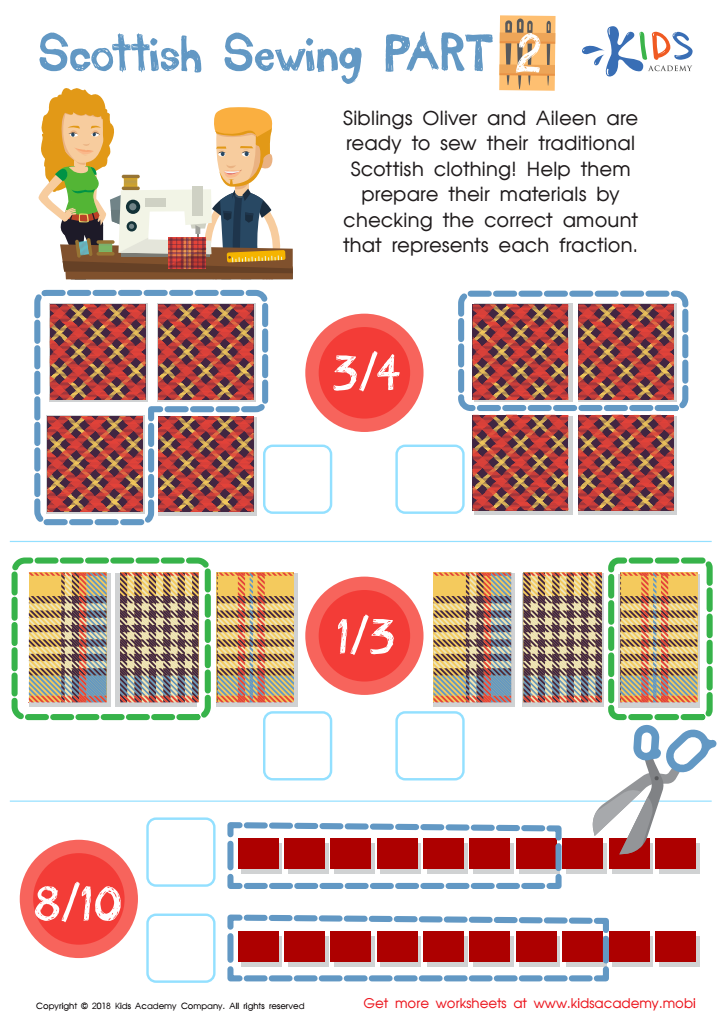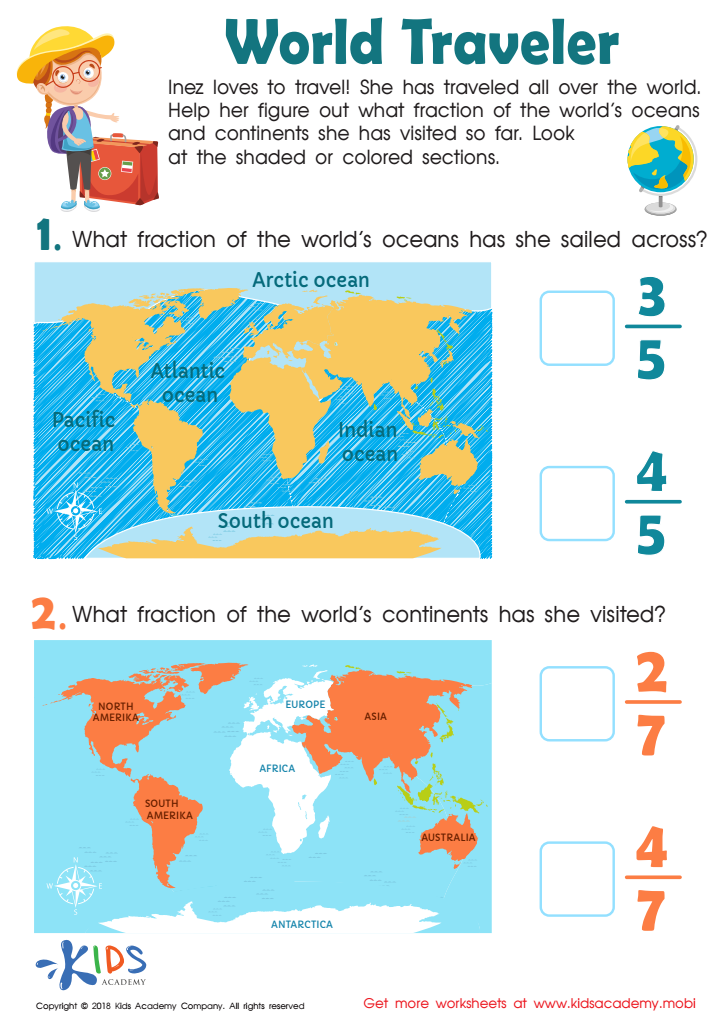Cultural awareness Numbers Worksheets for Ages 7-9
4 filtered results
-
From - To
Enhance your child's learning with our "Cultural Awareness Numbers Worksheets" designed for ages 7-9! These engaging resources not only focus on fundamental math skills but also immerse children in diverse cultural contexts. Each worksheet creatively combines number recognition, counting exercises, and math challenges, all while introducing children to various cultural traditions and practices. By integrating cultural awareness with numeracy, these worksheets promote inclusivity and understanding. Encourage your young learners to explore numbers in exciting new ways, fostering both mathematical skills and a broader worldview. Download our fun and educational worksheets today to inspire curiosity and respect for global cultures!


Around the Globe Worksheet


Mexican Cooking Worksheet


Scottish Sewing Part 2 Worksheet


World Traveler Worksheet
Cultural awareness is vital for children aged 7-9, as this is a developmental stage where they are beginning to shape their understanding of the world and their place within it. Parents and teachers should prioritize cultural awareness because it fosters respect and appreciation for diversity. At this age, children are curious about different backgrounds and lifestyles, and equipping them with cultural knowledge enhances their empathy and understanding.
When teachers incorporate cultural awareness in the classroom, students learn to celebrate differences and build connections with their peers. This promotes an inclusive environment where every child feels valued and understood. Furthermore, nurturing this awareness prepares students for an increasingly globalized world, where being culturally competent is essential for personal and professional success.
By exposing children to various cultures, parents can cultivate open-mindedness and adaptability. Reading diverse stories, celebrating various cultural holidays, or engaging in community events can enrich a child's educational experience and social skills. Ultimately, fostering cultural awareness among young learners creates a foundation for future inclusivity, collaboration, and respect for others, which are crucial skills in today's interconnected society. Parents and teachers play a key role in shaping these positive attitudes toward diversity.

 Assign to My Students
Assign to My Students
















